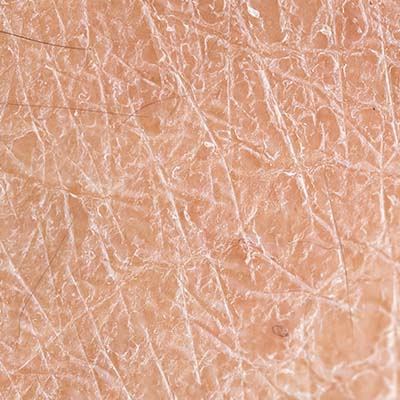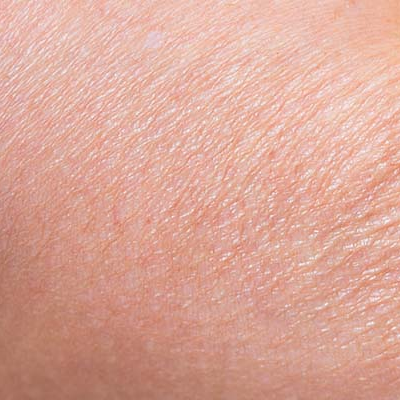© AMPERNA® 2024 ABN: 29 633 509 449
This site is protected by reCAPTCHA and the Google Privacy Policy and Terms of Service apply.


Wouldn’t you just love to take a long sip from that mythical fountain of youth so you never have to worry about a wrinkle again?
Ageing is a fact of life, and changes to our skin are one of the most visible signs of ageing. There may not be a magical fountain of youth, but there’s a lot we can do to keep our skin looking as good as possible as we embrace this beautiful adventure called life.
We know that it can be hard to find the best skincare products for mature skin. AMPERNA® has a range of products that can be of benefit for those looking to target wrinkles, fine lines and other signs of ageing.
As we get older, the outer layer of our skin gets thinner and more fragile. Below this layer, our connective tissue changes, reducing our skin’s elasticity and strength.
In an article for Scientific American, Susan Obagi, assistant professor in dermatology at the University of Pittsburgh, explains that there are two factors when it comes to skin ageing; intrinsic ageing and extrinsic ageing.
According to Susan, intrinsic ageing is what happens to us all naturally, regardless of other influences like the environment. After we turn 20, we produce less collagen in our skin, resulting in the skin becoming thinner and more fragile. Our sebaceous glands produce less oil, meaning that skin can dry out more easily, and we produce less elastin.
Extrinsic ageing is additional to what happens naturally. This includes sun and environmental damage (such as smoking and exposure to pollution). As we get older, sun damage starts to show up more visibly in the form of dark spots and wrinkles. It also speeds up the loss of collagen and elastin. These extrinsic factors are what really accelerate the visible signs of ageing.
In Susan’s opinion, the key to minimising wrinkles is all about prevention.
There are many things that we know to cause wrinkles, and probably just as many myths about the subject.
Five of the top things listed as causes of wrinkles and ageing skin include:
Sun damage via UV exposure
UV exposure is the most common reason for the premature appearance of wrinkles. It also contributes to thinning the top layer of skin as well as causing a breakdown of collagen.
Our founder Kiri is a big fan of wearing hats, sunglasses and sunscreen whenever she heads outside – it not only serves to protect her sensitive skin but helps to limit sun damage and signs of ageing.
Facial expressions
Contracting our face into a smile or a frown results in the formation of wrinkles over time.
Loss of volume
As we get older we lose our skin’s plumpness due to loss of collagen and hyaluronic acid. This leads to sagging and the more visible appearance of wrinkles.
Gravity
Everything starts to sag downwards over time as skin elasticity decreases, leading to drooping cheeks and eyes, which contribute towards facial wrinkles.
Reduced ability for our skin to retain moisture
The glands that secrete oil shrink as we age, leaving our skin without a protective layer of oil. This leads to a decrease in ability to stay moisturised, making the skin dry and scaly.
For more reading on what could cause your skin to age, you might find this article from Health.com interesting.
Some people (including some dermatologists) believe that how you sleep and the pillowcase you lie on can be a contributing factor towards wrinkles.
It does make sense that over time, if we are always sleeping on the same side of our face, prolonged pressure could cause creases that may be less likely to go away as we age.
Maybe the Japanese Geisha had the right idea in terms of sleeping on their back with their neck supported on a small platform! But don’t throw your pillow away just yet…
The jury is still out on this one. While one very small study did report a link, a slightly larger study concluded that there was no significant correlation between the appearance of wrinkles and what side people sleep on.
Research studies have shown that using a good sunscreen daily can help to prevent the signs of premature ageing.
In a 2013 study published by the American College of Physicians’ Annals of Internal Medicine, researchers compared skin ageing in Australian men and women over a four-year period. They found that the use of daily sunscreen significantly slowed skin ageing, even in those of middle age.
Other ways that have been suggested to minimise facial wrinkles and other visible signs of ageing include:
- Moisturising regularly to help prevent dryness, bruising and tearing.
- Using a cream that contains retinol.
- Using a humidifier while you sleep in order to keep the skin hydrated and supple.
- Limiting alcohol consumption (excessive drinking can lead to dehydration, amplifying imperfections).
- Limiting salt intake (according to Dr Kim, a dermatologist in California, too much sodium can cause eyelids to retain excess fluid (Source:Readers Digest).
- Having a healthy diet full of fresh fruit and vegetables as well as healthy oils and whole grains (according to researchers at the University of Maryland Medical Center, a healthy diet focused around these foods may protect our skin from free radical damage because they are high in antioxidants).
- Using topical creams containing antioxidants - exposure to the sun reduces the natural antioxidants in our skin, but research has shown that creams containing antioxidants ‘may help reduce the risk of wrinkles and protect against sun damage.’
- Regular exfoliation (resurfacing) to remove the top layer of skin and allow the growth of new skin.
- Getting plenty of sleep – yes beauty sleep really is a thing, read on for more info!
A 2013 study by the University Hospitals Case Medical Centre found that people who had poor sleep patterns showed increased signs of skin ageing and slower recovery from a range of environmental factors such as sun damage.
‘Our study is the first to conclusively demonstrate that inadequate sleep is correlated with reduced skin health and accelerates skin ageing,’ explains Dr Baron, Director of the Skin Study Center at UH Case Medical Center (Source: Science Daily).
Poor quality sleepers showed increased signs of intrinsic ageing including fine lines, uneven pigmentation and reduced skin elasticity.
Well there’s one more reason to switch the alarm clock to snooze and close your eyes for another fifteen minutes of beauty sleep!
If there’s one thing to take away from almost every article and piece of research written about anti-ageing, it’s that sun protection is super important.
AMPERNA® 10% Pro+ Resurfacing Lotion contains 10% glycolic acid (AHA) and antioxidants to calm redness and improve the skin’s texture. Glycolic acid helps reduce the appearance of fine lines, wrinkles, dark circles and uneven skin tone. Our glycolic lotion has been specifically formulated for sensitive skin and is the first to market in this category.
Chemical exfoliants can increase skin’s sensitivity to the sun. Always wear sunscreen and appropriate sun protection while using this product.
You may also be interested in introducing a retinol to your regime. Retinols help speed up cell renewal, help boost collagen production, help reduce oil production, help improve skin tone & texture and help soothe inflammation.
We have two retinol products, our AMPERNA® Pro+ Bio Resurfacing Retinol RX serum which contains Granactive Retinoid and our AMPERNA® Pro+ Bio Resurfacing Retinol ALT serum which contains Bakuchiol.
Hydroxypinacolone Retinoate (HPR – Retinoic Acid Ester) which you might be familiar with as "granactive retinoid" helps diminish signs of ageing whilst being more gentle on skin that other forms of retinol. Granactive retinoids help skin turn over whilst helping to slow down the degeneration of collagen.
Our retinols are the first probiotic retinols to market that also contain Bio Fermented Oligopeptides/Peptides. Yeast Ferment Extract and Soy Amino Acids help to stimulate skin renewal, they actively help refine & restore skin texture and radiance safely.
Bakuchiol is a plant-based retinol alternative. It is a botanical ingredient distilled from the seeds and leaves of the Indian babchi plant, which has been used for centuries in Ayurvedic medicine to help skin conditions. Our AMPERNA® Pro+ Bio Resurfacing Retinol ALT serum is pregnancy and breastfeeding safe.
Retinols can increase skin’s sensitivity to the sun. Always wear sunscreen and appropriate sun protection while using this product.
Introducing retinols into your skincare routine slowly is important to prevent irritation and sensitivity.
As you know it is important to wear an SPF. Our Pro+ Bio Soothing Day Mineral CC SPF15 is the first probiotic SPF moisturiser to market, full of great active skin loving ingredients, that has been specially formulated for even the most sensitive skins.